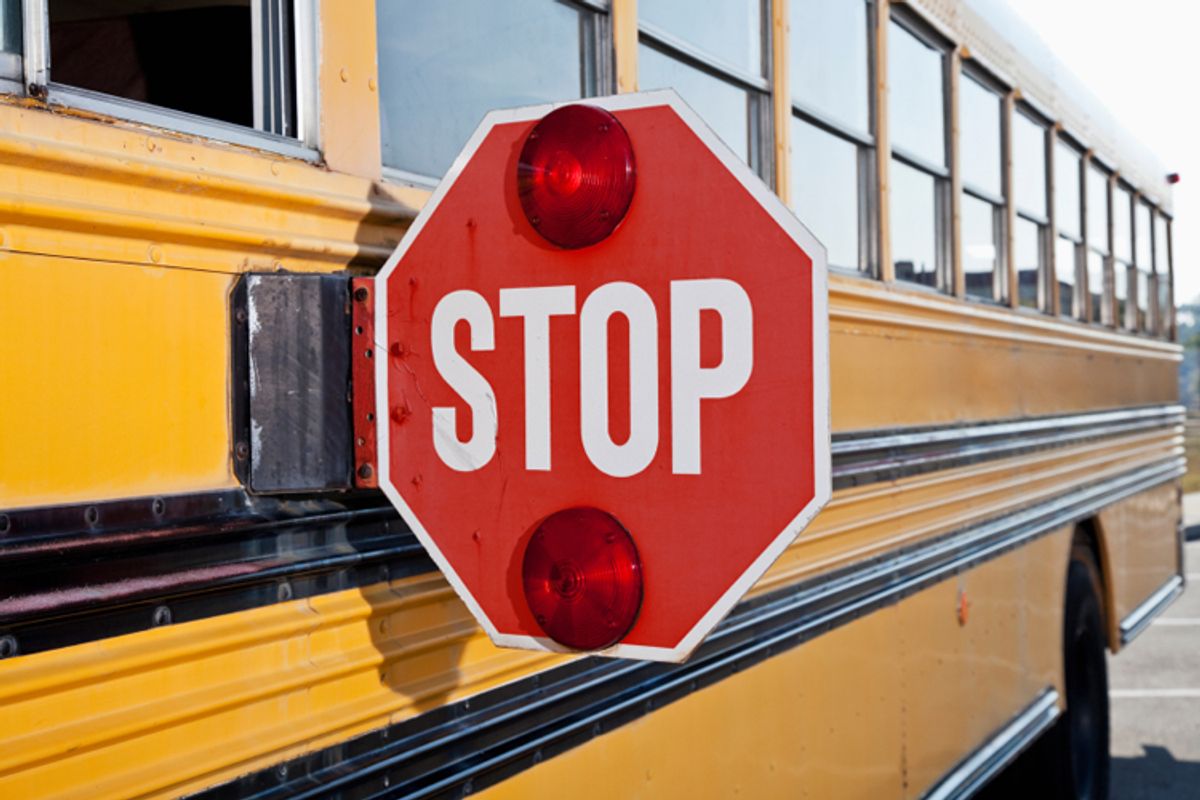Schools around the country that use so-called zero tolerance policies and station police officers at school have seen a steady rise in the number of suspensions, expulsions and arrests for minor nonviolent offenses, but little improvement in academic achievement or higher graduation rates. The widespread criminalization of teenagers for minor offenses --the majority of whom are young people of color -- has led many schools administrators, city lawmakers and even law enforcement officials to question the approach.
As the New York Times notes, several large school districts, including Los Angeles, Baltimore, Chicago and Denver, have reconsidered the punitive approach in favor of providing counseling and behavioral support for students.
“A knee-jerk reaction for minor offenses, suspending and expelling students, this is not the business we should be in,” Robert W. Runcie, a school superintendent in Broward County, Fla., who is reforming his school's use of zero tolerance, told the Times. “We are not accepting that we need to have hundreds of students getting arrested and getting records that impact their lifelong chances to get a job, go into the military, get financial aid.”
“What you see is the beginning of a national trend here,” noted Michael Thompson, the director of the Council of State Governments Justice Center. “Everybody recognizes right now that if we want to really find ways to close the achievement gap, we are really going to need to look at the huge number of kids being removed from school campuses who are not receiving any classroom time.”
More from the Times:
In Broward County, the shift [away from zero tolerance] has shown immediate results, although it is too early to predict overall success. School-based arrests have dropped by 41 percent, and suspensions, which in 2011 added up to 87,000 out of 258,000 students, are down 66 percent from the same period in 2012, school data shows.
Under the new agreement, students caught for the first time committing any of 11 nonviolent misdemeanors are no longer arrested and sent to court. Rather, they attend counseling and perform community service.
Nor do students face suspension for minor infractions. Instead, they also attend a program called Promise for three days or more. Repeat offenders get several chances to change their behavior before more punitive measures kick in.
One recent afternoon, an 18-year-old senior sat in the cafeteria at the Pine Ridge Alternative Center, where students are sent in lieu of a suspension, and spoke with a psychology graduate student on a counseling team. The girl had been caught with a small amount of marijuana in her car on her high school campus, a misdemeanor that would have led to a suspension or arrest in the past. It was the first time she had gotten in trouble at school.
“I was freaking out,” she said. Her first fear was that she would be barred from prom. Here, though, she saw the larger picture and came to view the incident as “her second chance.”
She learned about bullying and drugs and alcohol. “It was a slap in the face,” she said. “I don’t even want to smoke anymore.”

Shares